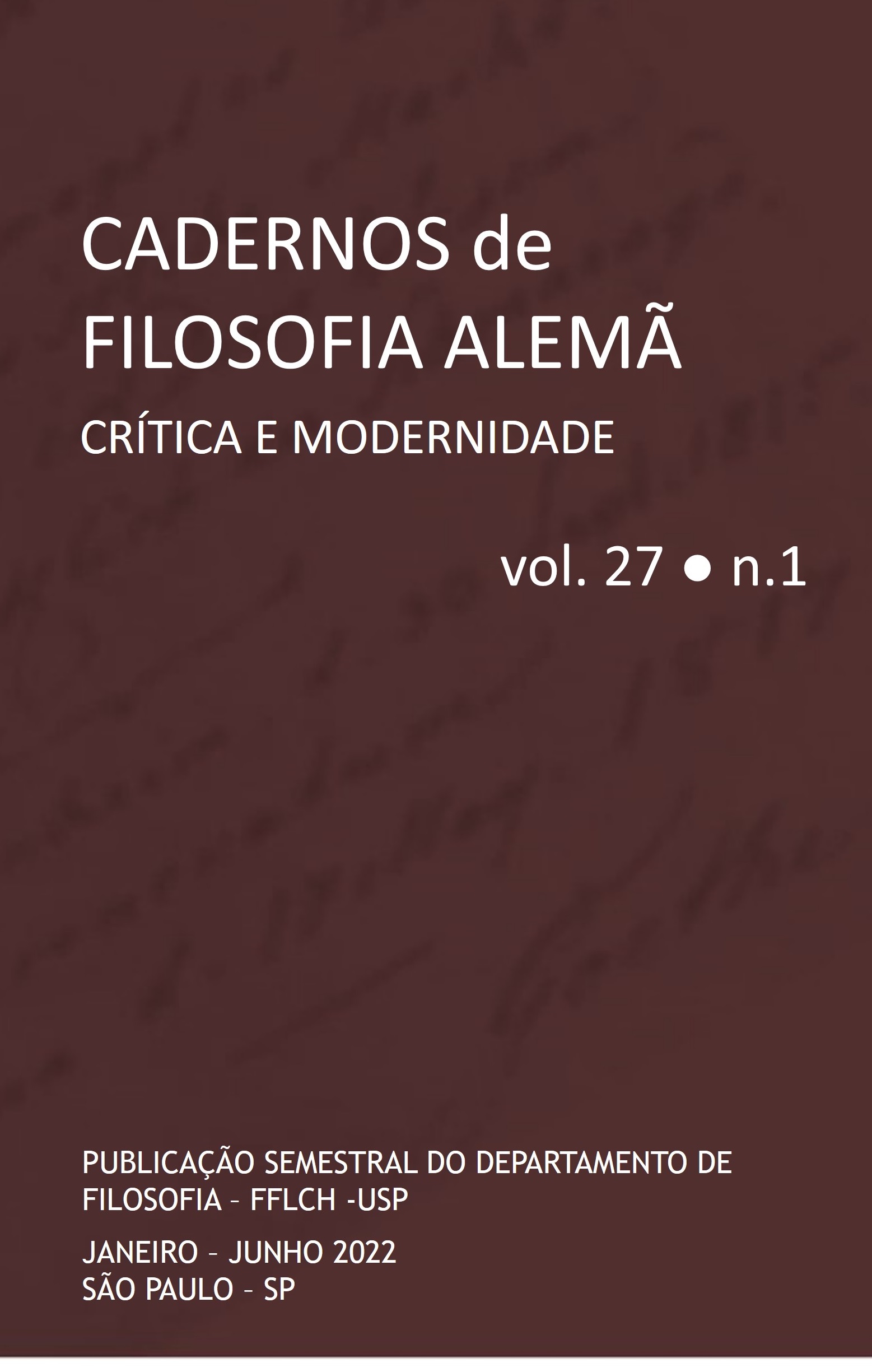Rethinking women’s issues from Hannah Arendt’s political thought
DOI:
https://doi.org/10.11606/issn.2318-9800.v27i1p33-48Keywords:
Hannah Arendt, Mulheres, Espaço público, Social, PolíticoAbstract
We present a new perspective on women’s issues in Hannah Arendt’s thought by arguing that it is useful for feminism or women’s issues when one intends to think about political participation. For this purpose, we first call into question the interpretation of the category of public space in Arendt by the paradigm of model theory, distinctly defended by Bonnie Honig and Seyla Benhabib. Then, also contrary to part of the critical literature, we hold that Arendt's distinction between the social and the political seems to have some meaning for thinking about women’s issues.
Downloads
References
Arendt, H. (1989). As Origens do Totalitarismo. São Paulo: Companhia das Letras
Arendt, H. (2004). O que é Política. Editoria Úrsula Ludz. 5ª ed. Rio de Janeiro: Bertrand Brasil.
Arendt, H. (2008a). Sobre a emancipação das mulheres. Compreender: formação, exílio e totalitarismo. São Paulo: Companhia das Letras.
Arendt, H. (2008b). Little Rock. Responsabilidade e Julgamento. São Paulo: Companhia das Letras.
Arendt, H. (2011). Sobre a Revolução. São Paulo: Companhia das Letras.
Arendt, H. (2013a). Crises da República. 3ª ed. São Paulo: Perspectiva.
Arendt, H. (2013b). Entre o Passado e o Futuro. 7ª ed. São Paulo: Perspectiva.
Arendt, H. (2016a). A Condição Humana. 13ª ed. Rio de Janeiro: Forense Universitária.
Arendt, H. (2016b). Escritos Judaicos. Barueri, SP: Amarilys.
Arendt, H. (2018). Ação e a Busca da Felicidade. Rio de Janeiro: Bazar do tempo.
Benhabib, S. (1992). Situating the Self. Gender, Community and Postmodernism in Contemporary Ethics. Polity Press.
Benhabib, S. (1993). Feminist theory and Hannah Arendt and the public space. History of the human sciences, 6(2), 97-114.
Benhabib, S. (1995). The Pariah and Her Shadow: Hannah Arendt's Biography of Rahel Varnhagen. Political Theory, 23(1), 5-24.
Benhabib, S. (2003). The Reluctant Modernism of Hannah Arendt. Rowman & Littlefield Publishers.
Bernstein, R. (2021). Por que ler Hannah Arendt hoje? Rio de Janeiro: Forense Universitária.
Fraser, N. (1989). Unruly practices: power, discourse, and gender in contemporary social theory. University of Minnesota Press.
Habermas, J. (1997). Hannah Arendt’s Communications concept of power. Social Research, 44(1), 3-24.
Honnig, B. (1995). Toward an Agonistic Feminism: Hannah Arendt and the Politics of Identity. In: Honnig, B. (org). The feminist interpretations of Hannah Arendt. Pennsylvania: The Pennsylvania State University Press.
Rich, A. (1979). On Lies, Secrets, and Silence. New York: W. W. Norton & Company. Apud Benhabib, S. (2003). The Reluctant Modernism of Hannah Arendt. Rowman & Littlefield Publishers.
Vieira, H; Janone, L. Brasil é 142° na lista internacional que aponta participação de mulheres na política. CNNBrasil. Disponível em: https://www.cnnbrasil.com.br/politica/brasil-e-142-na-lista-internacional-que-aponta-participacao-de-mulheres-na-politica/ Acesso em: 05/01/2022.
Young-Bruhel, E. (1997). Hannah Arendt: Por amor ao mundo. Rio de Janeiro: Relume Dumará.
Zerilli, L. (2005). Feminism and the abyss of freedom. Chicago: The University of Chicago Press.
Downloads
Published
Issue
Section
License
Copyright (c) 2022 Nathalia Rodrigues da Costa, Nádia Junqueira Ribeiro

This work is licensed under a Creative Commons Attribution-NoDerivatives 4.0 International License.
Information and conceptions on the texts are complete responsibility of the authors.
All the articles submitted before July 5th 2018 and those published after July 2021 are licensed under a CC BY-NC-ND license – except those published between the aforementioned dates, which are under the CC BY-NC-SA license. The permission for the translation of the material published under the license CC BY-NC-ND by third parts can be obtained with the consent of the author.
Open access policies - Diadorim
Rules applied before July 5th 2018:
Presenting a submission to our Editorial Board implies granting priority of publication for “Cadernos de filosofia alemã”, as well as transferring the copyright of texts (once published), which will be reproduced only with the manifest authorization of the editors. Authors keep the right to reuse the texts published in future editions of their work, without paying any fees to "Cadernos”. We will not grant the permission to re-edit or translate the texts for third parts without agreement of the author.
Funding data
-
Fundação de Amparo à Pesquisa do Estado de São Paulo
Grant numbers 2018/00645-5 -
Conselho Nacional de Desenvolvimento Científico e Tecnológico
Grant numbers 165175/2017-6


